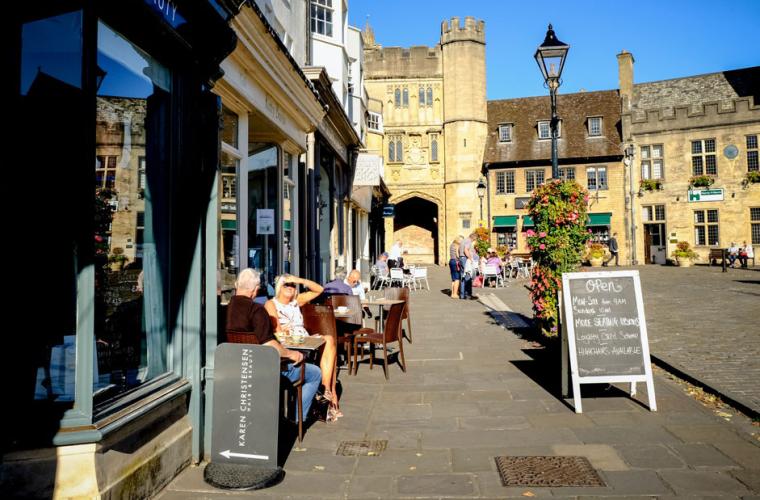Local cafés, bars, pubs and restaurants should be allowed to continue hosting patrons outside on pavements with the introduction of a permanent but locally led pavement licensing regime, councils say ahead of the Queen’s Speech.

The Local Government Association, which represents 350 councils in England and Wales continues to discuss with government its plans to create a permanent outdoor seating regime.
It comes after government introduced a temporary pavement licensing regime through the Business and Planning Act 2020 in response to COVID-19, which supported national safety measures while reinvigorating the high street.
The temporary regime was based on a fast-track application process and reduced fee level to support hospitality businesses hit hard by the pandemic.
The LGA said councils support the move to create a permanent pavement licensing regime, but that key changes are needed to reflect that we are no longer in a national emergency.
New legislation, potentially brought forward in next week's Queen's Speech, should provide councils with better enforcement powers to take actions where businesses are flouting the rules, for example by blocking pavements, and ensure councils are able to set fees at levels that cover administrative costs.
Crucially, there should also be a longer application and determination period, in line with other licensing regimes, to give residents and other stakeholders more time to give their views, for example where there are concerns about noise.
Extending the consultation time will ensure councils have the time to make appropriate decisions for their communities that considers the needs of different businesses and residents.
Locally set fees would ensure councils are able to fully recover their costs and avoid taxpayers’ money being diverted from other services to pay for processing applications.
Cllr Nesil Caliskan, Chair of the LGA’s Safer Stronger Communities Board, said:
“Councils supported the temporary scheme, and worked hard to help hospitality businesses reopen, including relaxing requirements and making changes to roads and pavements to enable pubs, cafes and bars to operate outside safely with more outdoor seating.
“Managing the impact of a permanent regime on nearby residents is a priority for councils, but we are no longer in a national emergency, and we need to make sure the long-term approach to pavement licensing better balances the needs of local businesses and residents.
Councils are urging government to ensure residents have time to feed into decisions that affect them and provide adequate enforcement powers to address concerns or risks linked to licences.
“A permanent locally-led regime with these additional tools for councils would enable them to continue supporting local businesses and provide a welcoming, vibrant local hospitality offer for residents and visitors.”
Notes to Editors
- Residents and councils need adequate time to respond to and evaluate applications, and the 14 days allocated in the Business and Planning Act 2020 does not allow for this because by law, councils have to reach a decision within 14 days, it makes it more likely that they will reject an application outright as they do not have the time to engage with businesses to address any concerns and make amendments to the original proposal. Councils also need a realistic but fair amount of time to engage with other bodies, such as the highway authority and the police, to ensure that all licences that are issued are safe and process applications in a timely manner.
- Under the temporary regime, the fee for issuing licenses was capped at £100 however, costs for licensing authorities typically amount to at least double or more. Resulting in significant cost shortfalls.
